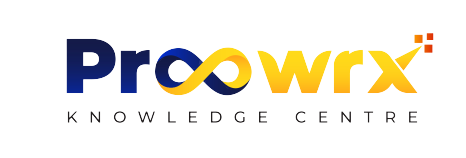A right mortgage broker is like a helpful guide who assists people looking to buy a home in finding the best loan rates. Instead of you having to reach out to each lender for rate quotes, the broker does all the work. They usually get paid by the lender you choose or through fees you pay. If you decide to work with a specific mortgage broker, it’s important to calculate your potential mortgage costs to fully understand what you’ll be paying. If you need assistance with home buying or other financial matters, it’s a good idea to consider working with a financial advisor.
Who Is a Mortgage Broker?
A mortgage broker is someone who connects homebuyers with lenders. They don’t work for the lenders and don’t provide the loans themselves.
When you start working with a mortgage broker, they will review your financial situation, including your credit score, income, and other important details. This helps them find the best loan options for you and apply for loans on your behalf.
Mortgage brokers can be paid in two ways: by the lender or by you. Sometimes, the lender covers their fees, but other times, you might have to pay. The broker’s fees can depend on factors like where your home is located and the current state of the housing market.
Why Use a Mortgage Broker?
Over 70% of new home loans in Australia are set up through mortgage brokers because they simplify the process.
Here’s why working with a broker is beneficial:
- Brokers are legally required to put your best interests first.
- Most brokers have connections with over 30 lenders. It’s tough to compare that many on your own.
- Home loans are their specialty. Brokers use their expertise and market insights to help you make an informed decision.
- Especially helpful for first-time buyers, brokers guide you through every step.
- Brokers take care of working directly with lenders, so you don’t have to.
- They assist in gathering necessary documents to prove your identity and income, making the paperwork less stressful.
Difference Between a Mortgage Broker and a Bank
A broker and a bank? They’re not the same thing.
Banks are lenders. They’re the ones who give you the money to buy your home. You can choose to work directly with a bank, but that means you’ll have to do a lot of the work yourself—like negotiating, comparing lenders, and exploring options.
On the other hand, a broker does all that heavy lifting for you. If you value expert advice and want someone to guide you through the process, from handling paperwork to comparing different options, a broker is a great choice.
Now that we know they’re different, let’s look at how to find a good mortgage broker.
How to Choose a Right Mortgage Broker
Before choosing a mortgage broker, make sure they meet several important criteria. First, consider whether you need a mortgage broker at all. Most homebuyers go directly to lenders these days. Using a mortgage broker has become less popular because of the extra cost and changes after the financial crisis.
However, if you prefer having someone else handle the lender options and much of the paperwork, a mortgage broker can be worth the cost. To help you decide, here’s a list of questions to ask when talking to a mortgage broker.
Here are some things to look for before you make the call
How do you know if a mortgage broker is legit? Reputable? Easy to work with?
Ask these questions.
What Are Your Fees?
Mortgage brokers earn money in various ways. Since each broker operates independently, their payment structures can differ. It’s important to know how your broker gets paid to understand if they might favour a certain lender.
For example, if a lender pays your broker for each mortgage they arrange, it could be a red flag. The broker might push you toward a specific lender, even if it’s not the best fit for you. While this might save you from paying the broker directly, it could result in higher long-term mortgage payments.
Do they have past reviews?
Customer reviews can tell you a lot. Look at what people say about them. Were they friendly? Supportive? Reliable? Responsive?
Any broker will work to find you a good deal. But in our (perhaps biased) opinion, a great broker will listen to your needs, offer excellent options, and guide you through the process while keeping you informed.
Does Experience Matter?
Whether you’re dealing with a company or an individual, experience is important. Start by looking into their education and background—have they been doing this for a while?
But it’s not just about their broking experience. Other experiences can be valuable too. For example, if they used to work for a bank, they probably know the ins and outs of the industry. (Hint: our founders were once high up in big banks but broke away to help people manage their money better.)
How Many Lenders Do They Work With?
The more lenders a broker has relationships with, the more options you’ll have. Most brokers typically have a panel of around 30+ lenders.
How are they paid?
Most mortgage brokers are paid by the banks (not you, thankfully). So, you don’t have to pay a cent to get their guidance.
And just because a broker gets paid by the banks doesn’t mean they work for them. There’s a difference. Brokers still have to work in your best interests and find the right loan for you.
How Does Their Process Work?
The process can vary a bit between brokers, and that’s okay. What’s important is that they’re there for you every step of the way.
It’s crucial that they’re upfront about the process from the start (because nobody likes to be left in the dark).
- Do they offer an initial meeting to really understand you and your goals?
- Will they guide you through the pre-approval process?
- And once you’ve found a property, can they advise you on when to bring in other experts, like conveyancers and building inspectors?
A good broker will make the home loan process feel like a walk in the park.
Do They Help You After You Get the Loan?
Once your loan is approved, will they stick around to help you through settlement and beyond? What about if your rate changes or better deals pop up? Will they keep you informed and assist you in making the next move? Or will they disappear after they get paid?
Once again, a good way to find out is by checking past reviews. You can also ask them directly if they’ll support you after your loan is approved and pay attention to their answer.
What Are My Chances of Qualifying For a Mortgage?
Before diving into the home-buying process, it’s important to check your financial health. If you have low credit, employment or income issues, high debt payments, or a history of bankruptcy or foreclosure, tell your broker. If they make it sound like you’ll easily get a good mortgage rate, be cautious. You want an honest broker who sets realistic expectations about your chances of qualifying for good rates, or even at all.
What Lenders Do You Work With?
When choosing a mortgage broker, find out if they work with a variety of lenders or just a few. Some brokers have a wide pool, while others work with only a select few. Some lenders don’t work with brokers at all. If you want to compare rates across many lenders, a broker with a large pool makes sense. But if they only work with a few, it might be cheaper to do the rate shopping yourself.
Why Should I Work With You Instead of Directly With a Lender?
Your broker should make it clear why working with them is beneficial. After talking with them, you should feel confident about continuing. If you’re unsure, ask them directly. If their answer doesn’t reassure you, it might be best to find someone else. It’s important to work with someone who will truly help you in the way you need.
The Bottom Line
A mortgage broker connects you with different lenders, helping you find the perfect loan for your new home. Before choosing a broker, it’s important to do your research. Following these steps and tips can help you find the right mortgage broker to guide you through buying your next home.
If you’re looking to connect with top mortgage brokers, schedule a Discovery call with Proowrx to explore your options.

